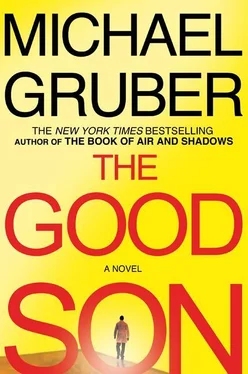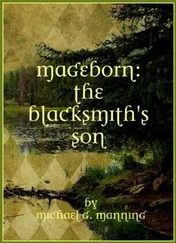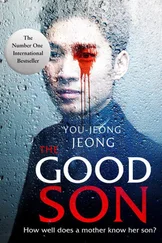“But they’ll send us back.”
“They will not. I have spoken with men who have returned. They use Afghan boys just like us for carrying and for lookouts and for spies. We can do the same.”

Wazir cleverly chose a truck loaded with blankets and medical supplies, or we would have frozen to death on the trip over the mountains. The mujahideen organizations supplied their fighters via a skein of caravan trails from their Pakistani bases, always switching routes to avoid patrols. We went north from Peshawar to Chitral and then took the Dorah Pass into Afghanistan, although at the time we had no idea where we were. It was cold. I was a kid from tropical Lahore and didn’t know what cold was until that trip; winter in the camp had been nothing compared to it. We burrowed down in our nest of blankets in a tight embrace and pissed into jars. The convoy had to make several detours into side canyons and wait while patrols from the government army, the DRA, went by. It took us nearly a week to get to our destination, by which time Wazir and I would’ve fought for the Russians, almost, if they had given us something to eat or drink. We’d only brought enough food for a few days.
Anyway, they found us among the blankets when they unloaded our truck, and we got roughed up a little and cursed, and then we were taken to the leader of this particular band of mujahideen, Murad Habib, who was called the Colonel, because he had been one in the old Afghan army, before the communist coup. He looked us over and poked us to see if we were worth keeping as pack animals. Wazir was fairly well built at fourteen but I was a skinny little thing-I probably didn’t weigh over seventy pounds at the time-and they were going to take him and send me back as baggage with the trucks, but Wazir said he wouldn’t leave me and he told our clan lineage to them, and it turned out that the Colonel was a Barakzai just like us and he was distantly related to Gul Muhammed. So it was decided that we could stay with them and wash pots and carry things and dig holes, but if they ever ran into our father they would dump us with him and let him deal with us.
Wazir became a bearer, which meant that at least he went out on ambushes and raids, but I stayed in our village of Gumban and watched the unit’s sheep. We had a flock of several hundred, for meat and milk and sheepskins, and also a herd of donkeys for haulage. The shepherd was Zorak, an older man, formerly a fighter, who had one eye and one leg. The first day he asked me if I wanted to hear how he lost them and naturally I did and he said he had been an RPG gunner and in the midst of a hot fight with a Russian column, he had fired so many rockets that he had fouled the tube of his launcher, and when that happens the tube kicks back when you shoot the next one and the rear sight rips out your eye. I asked him if it had hurt and he said he hadn’t much felt it until later, but the blood had gummed up his other eye and while he was stumbling around in the open, a Russian machine-gunner had blown off his leg.
He was a friendly enough guy for a Pashtun and seemed glad of my company, and after a few unsuccessful attempts he left my young ass alone and resumed the love of sheep. Every day was the same. We both lived in a one-room stone hut at the edge of the village. At dawn we would eat our breakfast of bread and ewe’s milk and, after morning prayer, feed the donkeys and drive the sheep up to pasture on the slopes of the Babur Valley and pray at noon and eat our lunch of bread and dal, then bring the sheep back at dusk, and pray again. When it snowed, we would feed them on hay and sit around the fire and sing songs and tell stories. Zorak knew the usual tales of kings and their clever daughters, of deos and fairies and man-eating devil-women, and I replied with what I could remember of the Arabian nights and Kipling and the plots of films I had seen. He was particularly fond of Snow White and the Seven Dwarfs. And we sang, to each other at night and to the sheep in their pastures. He knew a lot of traditional Pashto songs, mainly about love, and I responded with renditions of the ghazals I’d heard at Laghari Sahib’s parties. The sheep seemed to like it. Actually, at the time I had a good, clear boy’s voice and Zorak must have said something to someone in authority, because after a while I was invited to the celebrations the unit used to have after successful operations, to sing the ghazals of Ghalib and Mir and Nazir.
The NISA was a comparatively liberal organization, as things went in Pashtunistan. It attracted former Afghan army officers like the Colonel and other educated people. Their religion was the traditional mild Sufi-influenced Islam of the region. They loved music. Some of the younger guys had tape players on which they listened to Pashto pop songs from Pakistan, but the senior people liked the old ghazals and the old way of hanging out on a Thursday evening for a concert. I would come in from the sheepfold, wash, put on my one good shalwar kameez, wrap my turban neatly, and perform to the beat of the tabla and the plinking drone of the rubab, singing to my audience of rough, violent men about hopeless love and the great cosmic questions of life and death. I guess I became a kind of pet, especially of Colonel Habib’s. He would ask for particular ghazals; I remember he liked the one that goes:
We are bound by life and bound by grief,
It is the same binding cord,
Why should we look to be unbound from sorrow
Before the day of death?
Once I asked the Colonel how long he thought the war would last, and without hesitating he said, “Ten years, just like Vietnam,” and then he had to explain to me what Vietnam was and what had happened there. I got a good strategic education from the Colonel; he spent a lot more time with me than colonels typically spend with shepherd boys.
This connection helped ease my loneliness, because aside from Zorak I didn’t talk to anyone for days on end, and often when I was in the high pastures I didn’t even talk to him. Wazir had more or less dropped me, which is to say he would have given his life gladly to defend me, but he was a fighter and I wasn’t. He’d moved up from bearer and now carried an Enfield-this was maybe in the spring of our second year with the mujahideen command-and he treated me with a condescension I found hard to take.
I was a shepherd for something like two and a half years, the first phase of the Russian war. When I started out I was the coddled, maybe even spoiled, child of a wealthy Lahori family and at the end I was a Pashtun shepherd, tough as the roots of a camel thorn, uncomplaining, rainproof, snowproof, uncaring of the cold or the heat, master of the hills. It was the work that did it, I think. It’s no mystery why shepherds have featured so much in the great religions; being out in all weathers, under nothing but the sky, you can feel the eye of God on you all the time, and also the stupidity of the sheep, the constant worry over what they’re getting into, makes you think you should try your hand at fixing the stupidity of men. That, and the land itself, the bony country of the Pashtun: looming hills, red and tan and black above the evergreen forests, and other colors I can’t name, depending on the light and the season; and the softness of the floodplains, their green more gracious and lovely for the contrast with their setting of flint. The white of the apricot trees in spring, and in early summer the whole valley would be red with poppies, and in their midst you could see from the heights the glittering, braided river. And the air of the place, sharp as glass shards in the winter, like breathing live flame in deep summer, and the nights, ear-hissing silent except for the imbecile moaning of the sheep and the eternal wind in the stunted thornbushes, and overhead a million stars wheeling over the black rim of our canyon.
Читать дальше













